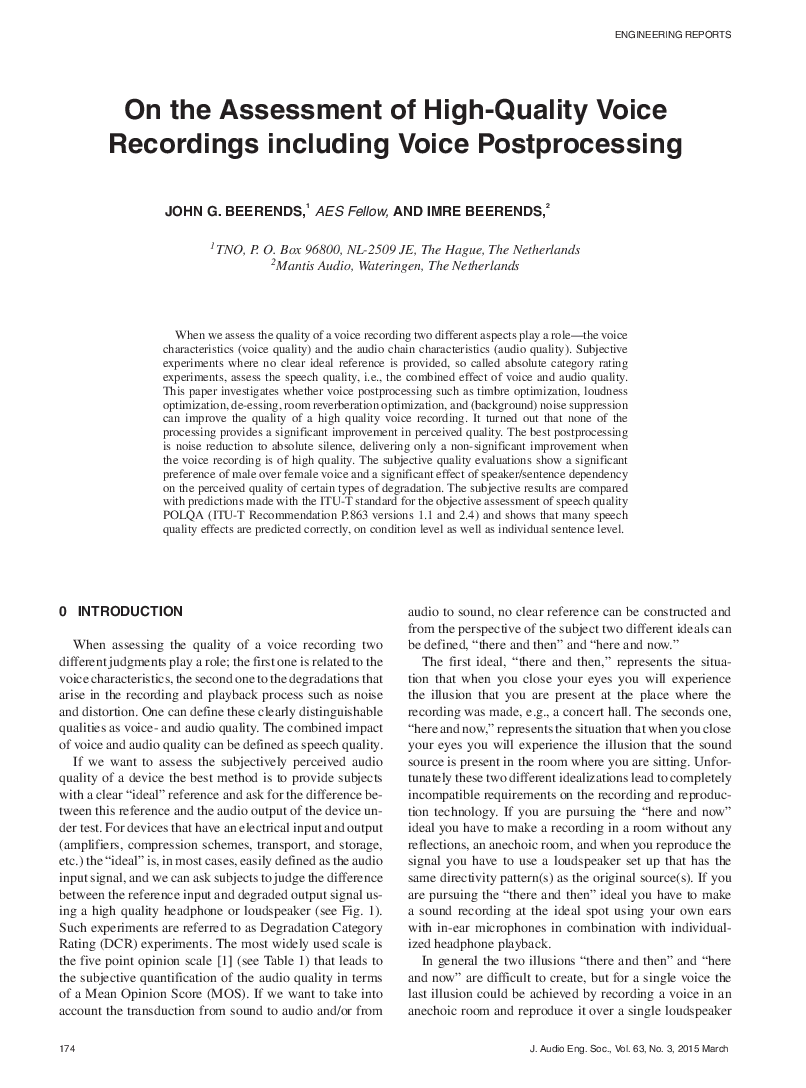Home / Publications / E-library page
You are currently logged in as an
Institutional Subscriber.
If you would like to logout,
please click on the button below.
Home / Publications / E-library page
Only AES members and Institutional Journal Subscribers can download
Evaluating the quality of voice recordings invokes two different aspects of preference: the appeal of the speaker’s voice characteristics and the perceived degradation of the actual recording. Subjective experiments where no reference ideal is provided, called absolute category ratings, fuse together both components. This research investigates if voice postprocessing (timbre optimization, loudness compensations, de-essing, room reverberation, and noise suppression) can improve perceived quality. The results show that none of these processing methods significantly improve the perceived quality and mostly give rise to a quality degradation. The voice preference is a very significant factor in the perceived quality. The subjective results are used to validate ITU-T Recommendation P.863 (POLQA) in the high quality region.
Author (s): Beerends, John; Beerends, Imre
Affiliation:
TNO, The Hague, The Netherlands; Mantis Audio, Wateringen, The Netherlands
(See document for exact affiliation information.)
Publication Date:
2015-03-06
Import into BibTeX
Permalink: https://aes2.org/publications/elibrary-page/?id=17576
(346KB)
Click to purchase paper as a non-member or login as an AES member. If your company or school subscribes to the E-Library then switch to the institutional version. If you are not an AES member Join the AES. If you need to check your member status, login to the Member Portal.

Beerends, John; Beerends, Imre; 2015; On the Assessment of High-Quality Voice Recordings including Voice Postprocessing [PDF]; TNO, The Hague, The Netherlands; Mantis Audio, Wateringen, The Netherlands; Paper ; Available from: https://aes2.org/publications/elibrary-page/?id=17576
Beerends, John; Beerends, Imre; On the Assessment of High-Quality Voice Recordings including Voice Postprocessing [PDF]; TNO, The Hague, The Netherlands; Mantis Audio, Wateringen, The Netherlands; Paper ; 2015 Available: https://aes2.org/publications/elibrary-page/?id=17576